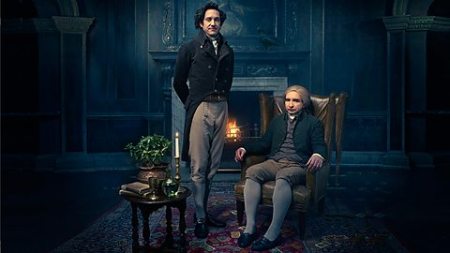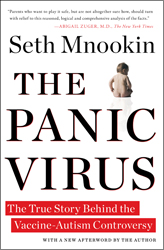Consider, if you will, a man who sits in his library day after day; a small man of no particular personal attractions. His book is on the table before him. A fresh supply of pens, a knife to cut new nibs, ink, paper, notebooks – all is conveniently to hand. There is always a fire in the room – he cannot do without a fire, he feels the cold. The room changes with the season: he does not… He meets his neighbours twice or thrice a quarter – for this is England where a man’s neighbours will never suffer him to live entirely bereft of society, let him be as dry and sour-faced as he may. They pay him visits, leave their cards with his servants, invite him to dine or to dance at assembly-balls. Their intentions are largely charitable – they have a notion that it is bad for a man to be always alone – but they also have some curiosity to discover whether he has changed at all since they last saw him. He has not. He has nothing to say to them and is considered the dullest man in Yorkshire.
I haven’t watched primetime UK drama for years. Part of the reason is TV here doesn’t give a story room to breathe. Unlike US drama which can afford a leisurely thirteen-ep slowburn, budget obsessed BBC and ITV execs have to condense complex narrative down into two or three episodes and for me it just doesn’t work.
I started watching the adaptation of Jonathan Strange and Mr Norrell a few weeks ago, expecting it to be terrible. The show won’t win over anyone who didn’t love the book (readers of Strange and Norrell either burn through its thousand pages enchanted, or fall at the first footnote) but the producers have done a pretty good job. Susannah Clarke’s narrative gets a whole seven episodes to unfold – for the BBC, that’s like The Wire. The casting is inspired: Enzo Cilenti is a wise and sinister Childermass, Charlotte Riley a witty and stunning Arabella, Vincent Franklin a wonderful Drawlight, Paul Kaye a deranged Vinculus. Ronan Vibert is possibly the best screen Wellington since Stephen Fry. Eddie Marsan has made a career of playing disturbed losers (cf his unhinged driving instructor in Happy Go Lucky) but, complete with a dour, fey North Yorks accent, he’s Mr Norrell to the life.
Clarke’s novel is set in a Victorian England that is like our own. But her society is haunted by a romantic medieval past of Aureate magicians ruled by the lord of the North, the Raven King. By the beginning of the nineteenth century, this English magic has gone from the land. It is only remembered by a York society who ‘met upon the third Wednesday of every month and read each other long, dull papers upon the history of English magic.’ The Society are not real magicians, but theoretical magicians: ‘which is to say they had never harmed any one by magic – nor ever done any one the slightest good. In fact, to own the truth, not one of these magicians had ever cast the smallest spell, nor by magic caused one leaf to tremble upon a tree, made one mote of dust to alter its course or changed a single hair upon any one’s head.’
To look at Mr Norrell – particularly from Clarke’s lovely and succinct description of him, quoted at the beginning of this piece – you would think that he is another one of these purely theoretical magicians. He’s dull, he gets ill easily, he hates to travel, he has no wife, no family, he is awkward, all he does is sit and read. ‘I do not know the world,’ he admits. But when the York Society go to visit Mr Norrell, curious about his library, he tells them: ‘Magic is not ended in England. I myself am quite a tolerable practical magician.’
Jonathan Strange and Mr Norrell is set in the Victorian age. It has a Victorian narration, complete with period-style authorial comment, footnotes, references, capitalisations and delightful little archaisms – chuse, sopha, surprize, Buonaparte, Soho-square. (Neil Gaiman is surely right that the narrator ‘is not, I am convinced, Clarke, but a character in her own right, writing her book closer to Strange and Norrell’s time than our own.’) Today the Victorians are characterised, even stereotyped, as repressed – crazy with morality and hoarding unspeakable desires. Yet they also built an empire and invented numerous interesting machines.
Norrell is certainly withdrawn and repressed but he does want to do things. He does actual magic. He wants to use his magical skills to win the war against France. But the first London politician that he meets – the Foreign Secretary, Sir Walter Pole – tells him straight out: ‘Magic is not respectable, sir.[‘]
The Government cannot meddle with such things. Even this innocent little chat that you and I have had today, is likely to cause us a little embarrassment when people get to hear of it. Frankly, Mr Norrell, had I understood better what you were intending to propose today, I would not have agreed to meet you.
The ministers are soon talked round and Mr Norrell is installed as the Nation’s renowned magician: given expensive commissions, hosted in fashionable salons, the connected name of English magic. (At parties guests are ‘continually delighted’ by such Norrellite repartee as: ‘I do not know whom you mean,’ ‘I have not had the pleasure of that gentleman’s acquaintance,’ ‘I have never been to the place you mention.’) Norrell believes passionately in wisdom derived from books, and like many intellectuals, he is also a censor. He wants the magic all to himself. Norrell himself can never finish a piece of writing. But he takes books out of circulation, he closes down magician schools and societies, he’s a hoarder and destroyer of knowledge. He even proposes special courts to execute deviators from Norrellite magic. This is another great para from the novel, on Norrell’s established periodical:
There is not much to interest the serious student of magic in the early issues and the only entertainment to be got from them is contained in several articles in which Portishead attacks on Mr Norrell’s behalf: gentleman-magicians; lady-magicians; street-magicians; vagabond-magicians; child-prodigy-magicians; the Learned Society of York Magicians; the Learned Society of Manchester Magicians; learned societies of magicians in general; any other magicians whatsoever.
Naturally, Jonathan Strange is everything Norrell is not. Strange is young, witty, handsome, sociable, married, courageous, generous, open minded, a traveller and a man of action. His TV actor Bertie Carvel looks like the diffident English gentleman from central casting, but Carvel handles Strange’s arc well, taking the character from landed fop to battle-fevered veteran to the grieving, wandering Byronic magician on the edge. Where Norrell wants to excise the Raven King from history, Strange is attracted to the King of the North and to the otherlands beyond respectable reality.
Constantly threatening to break through the structure of this Regency novel is Clarke’s Faerie alterworld. It’s a world of constant action and movement: balls, dances, murders, battles, processions, executions. The Faerie dreamscape is adamantine, profound and tempting – even Norrell is drawn by it, it’s his deal with Faerie’s playful devil, the ‘gentleman with thistle-down hair’ that brings Sidhe unreality crashing in. At first these weird legends surface in the footnotes, then rise to disrupt the main narrative. Scenes of towering bridges and shining rushing water and women in black dresses walking high and radiant on the ridges of the moors. Stones and skies and rivers pulse with warm life. Swallowing his tincture of madness, Strange has this vision:
Everything he thought before, everything he knew, everything he had been was swept away in a great flood of confused emotion and sensation. The world was made again in flame-like colours that were impossible to bear. It was shot through with new fears, new desires, new hatreds.
Like a dream, Faerie has no coherence, no discipline. Characters kidnapped into its decadence find its ceaseless celebrations dreary. Lady Pole and the butler Stephen Black are both held under the gentleman’s enchantment for most of the story, periodically yanked into its eldritch mansions without warning and at the gentleman’s whim. Whenever they try to explain their plight to people in the real world, all that comes out are nonsense stories – long, run-on tales of metamorphosis and serendipity, the very antithesis of the Victorian novel. (The shy academic magician Mr Segundus finally manages to break this enchantment by decoding the nonsense stories with a book of childhood faerie stories.)
This is all full on genre fiction, but still the postcolonial student could have a field day with Strange and Norrell. Both men are landed aristocrats who have inherited their wealth. There are rumours of serf farms and slave colonies – there is, in Orwell’s classic phrase, a deep conspiracy of silence about the source of the family income. Mr Norrell’s henchmen are Lascelles and Drawlight, urban dandies of cruel wit and precarious fortune, the antecedents of today’s Shoreditch hipsters. Both are selfish and ruthless men who come to terrible ends. The chief servants, Childermass and Stephen Black, are devoted to their respective masters. But both quietly rage against a society run as racial and class-based apartheid. If you wanted to be really intellectual you could frame the argument as Norrellite rationalist pragmatism versus Strange’s romantic egalitarianism.
For me though, and foremost, Strange and Norrell is a story about the gulf between thought and action… perhaps between desire and action. The artist, the intellectual, the writer and the reader all contain a Norrellite and a Strangeite personality. There’s the scholarly man who wants to sit in his library all day and the wild romantic who wants to plunge, madly, into other worlds. There is a theoretical magic and a practical magic. Writing too is a kind of practical magic.
(Image: BBC)



